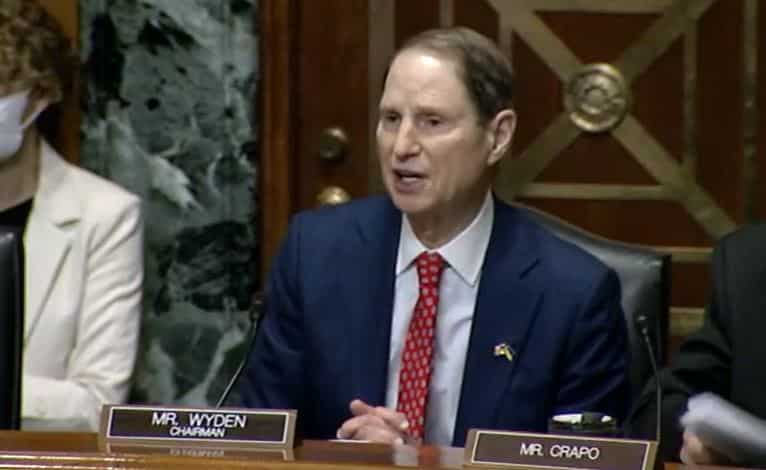Bipartisan Concern for Border Patrol’s Access to Travelers’ Phones

WASHINGTON — A letter to Commissioner Chris Magnus of Customs and Border Protection revealed the agency gathers data from Americans’ phones, laptops and other electronic devices in what they call a “border search,” potentially storing that information for years.
“Innocent Americans should not be tricked into unlocking their phones and laptops,” Sen. Ron Wyden, D-Ore., wrote in the letter released Thursday.
“CBP should not dump data obtained through thousands of warrantless phone searches into a central database, retain the data for 15 years, and allow thousands of [Department of Homeland Security] employees to search through Americans’ personal data whenever they want.”
In the letter Wyden details how his staff was told by CBP officials that the agency searches thousands of Americans’ phones at the border every year.
There’s variety in the depth of the searches ranging from “basic searches” to the more invasive where the agency can save the information to its database, according to Wyden.
Without suspicion of any wrongdoing, CBP can conduct “basic searches” where officers can scroll through people’s phones while they are being questioned.
However, if an agent has “reasonable suspicion” that a person is committing a crime enforced by the agency or there is a “national security concern” there can be a much more in-depth search of their electronic devices with permission from a supervisor.
That’s when the agency can download the contents of electronic devices — including text messages, call logs, contact lists and sometimes photos — into a central database that can be accessed by 2,700 DHS employees, Wyden wrote. And that information can be held for 15 years.
As of June 2022, the agency estimated in-depth searches that are retained happen to fewer than 10,000 Americans a year. Despite retaining that information in a database, agents don’t record why they conducted the search along with the records, Wyden wrote.
The searches of the database are also not recorded, he said.
All of these searches of peoples’ phones and the information stored occurs “without a warrant signed by a judge,” he wrote.
Wyden has been a longtime advocate for American privacy rights and is currently the lead sponsor of the Fourth Amendment is Not For Sale Act, which intends to crack down on the type of surveillance data law enforcement agencies can gather.
The law has been in the spotlight as senators, including Wyden, have called out the “Orwellian data gathering practices” of Immigration and Customs Enforcement — another agency overseen by the DHS. Privacy advocates are also concerned how geolocation information can be bought and sold in the post-Roe v. Wade world, potentially tying people to abortion services.
Data privacy is a bipartisan issue across Capitol Hill with the House Committee on Energy and Commerce having passed a popular general data privacy law out of committee in a 53-2 vote in July.
Wyden has also gained bipartisan support for his Fourth Amendment privacy law with three Republican co-sponsors of the bill.
Sen. Steve Daines, R-Mont., is one of the co-sponsors who originally took up the potential law in 2018. And he shared concern with what Wyden detailed in his letter.
“Americans’ Fourth Amendment rights don’t disappear when they return home from traveling abroad. We need to empower our border patrol agents to keep our country safe without sacrificing the privacy rights of Americans at the border,” Daines said in a statement provided to The Well News Friday.
In his letter, Wyden asks Magnus to detail how he will address these issues by Oct. 31.
Madeline can be reached at [email protected] and @ByMaddieHughes






















